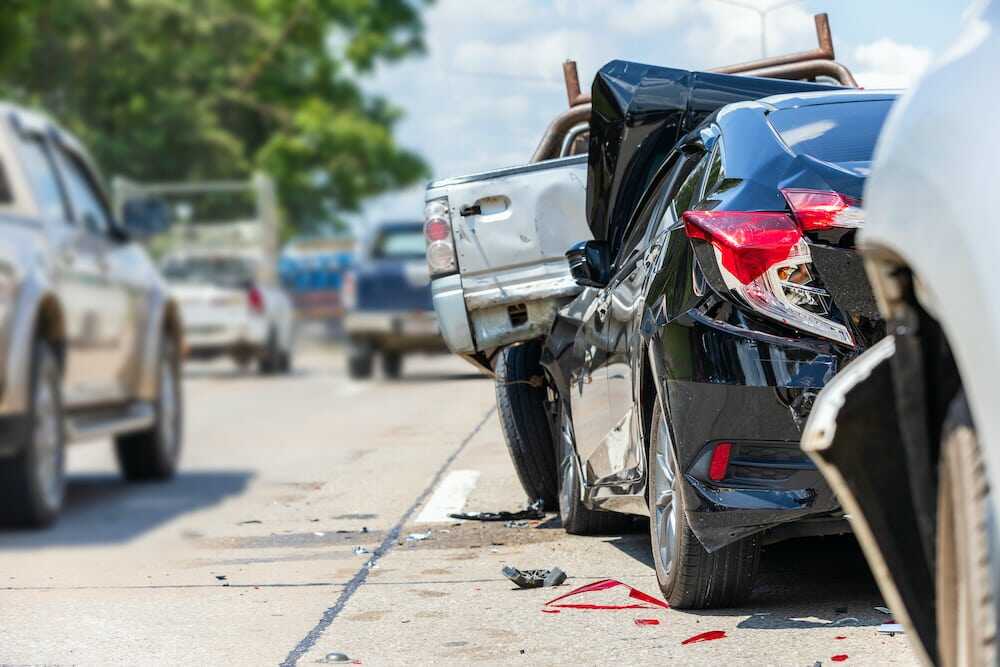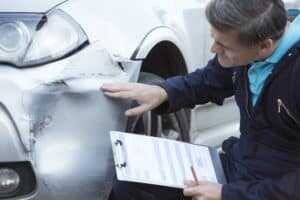California “At Fault” Accidents
The attorneys at MOET Law Group, APC, specialize in helping clients receive compensation for their personal injury claims.

Every year, there are approximately six million car accidents in the US alone. That breaks down to an average of 16,438 car crashes per day! With so many vehicles colliding, no matter how safely you drive, you will eventually be involved in an accident. If and when you are involved in an automobile accident, ensure you know what steps to take to keep yourself safe and protect your interests. To help prepare you for this eventuality, we have assembled some tips and tricks for what you should do in the immediate aftermath:
1. What will I need to prove property damage to my vehicle?
Take plenty of photos of the accident, including damage to all vehicles involved. This is the easiest way for your personal injury attorney to prove the degree of damage your vehicle sustained in the crash. Suppose you are in the minority and do not carry a cell phone capable of taking pictures. In that case, you may want to invest in an inexpensive digital or disposable camera to stow in the glove compartment of your vehicle. If you can’t immediately take photos (for instance, due to injury or traffic concerns), return to the accident scene and take photos later. Such images may help your insurance adjuster and legal representatives understand exactly what happened.

2. What information should I gather?
Record the names and contact information of any witnesses. But be careful not to discuss the accident with them. What’s more, under no circumstances admit fault or apologize. (These actions could be misconstrued as an admission of fault). Wait until the shock of the accident dissipates so you can evaluate the circumstances with your insurance adjuster and attorney. Also, write down everything you can about the accident as soon as possible:
- Where and when the accident occurred,
- The direction the vehicles were traveling,
- The speed of each vehicle, if known,
- Weather and traffic conditions,
- What the driver was doing at the time of the accident (e.g., moving or stopped, on the phone, listening to the radio, etc.); and
- Is there anything else that might help an adjuster understand what happened?
3. How does an insurer determine who was at fault?
Adjustors for each party independently examine available evidence, such as:

- The condition of their insured’s vehicle,
- Police accident report (if any),
- Videos of the accident (if any),
- Photos of the accident scene (if any),
- Photos of damage to the other vehicle,
- Repair estimates,
- The parties’ statements to the insurer,
- Statements from witnesses and
- Information (if any) obtained from the other driver’s insurance company.
- Each insurer will then issue a preliminary finding of fault. Remember, however, that this determination is not final and may even be wrong.
Comparative Fault Law
An experienced California accident lawyer can present the evidence to the insurer in the most favorable light. Sometimes, the adjuster will use the data to reconsider the accident. California’s comparative fault law enables adjustors and/or the court to split the blame for an accident between two or more parties. This means you could be entitled to partial recovery for losses even if you were partially to blame for a car accident in California.
4. What if repairs cost more than the estimate?
If repair costs exceed the original estimate, your repair shop should contact the insurance adjuster for approval before moving forward with the additional work. Most insurers will reassess and authorize the extra expenses if they’re deemed reasonable and necessary. However, you should stay in close communication with both your mechanic and your insurance representative to avoid being personally responsible for any unexpected costs. Keep all documentation related to the updated estimate and repairs, as this can support your claim if disputes arise.

5. What happens if my car is ruled a “total?”
In California, a vehicle is considered a “total loss vehicle” if the cost to repair it exceeds the actual cash value of the car. If your vehicle is “totaled,” the insurer may offer to reimburse you for a similar replacement car. They will likely offer to pay you Fair Market Value (up to your policy limit) minus any applicable deductible. If your vehicle has been financed and you owe more than the car is worth, “gap protection” would ensure you receive enough money to pay off the vehicle. Sometimes, you may need to haggle with the insurer or file an appeal to get them to agree to a reasonable “fair market value.”
About Moet Law Firm in Irvine and Ontario, California
In any cases, if you’re involved in a car accident, contact an experienced personal injury attorney such as Robert Moghadam or Nima Etemadian of MOET Law. We can help evaluate whether you may be eligible for compensation. Call MOET Law Today at 1 (866) 424-0789.
Book your FREE consultation today!
Call us now to get the compensation that you deserve.
Pay Nothing Upfront*
*Contingency fee basis. Client may be responsible for costs.